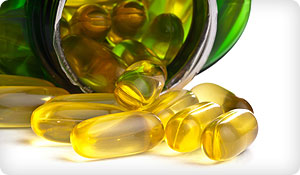
Fish oil is a great source of omega-3 fatty acids, but is Krill oil even better? Several studies say "yes."
Krill are tiny shrimp-like crustaceans that live on the bottom of the ocean. They're the primary food source for many species of whale, manta and shark. Krill are chock full of beneficial oils, including Omega-3 fatty acids, which are proven to be good for improving heart health, lowering cholesterol, reducing inflammation and reducing heart disease. They're also used for treatment of arthritis, hypertension, and even depression.
Some physicians say omega-3 supplements are important for anyone who doesn't get a lot of fish in their diet. Fish oil capsules are the most widely recommended Omega-3 supplement, but new research suggests that krill oil may be even better.
When scientists researched krill oil, they specifically studied samples from the Antarctic Ocean, called Neptune krill oil. The results have been startling.
- One study looked at the effects of krill oil on the C-reactive protein levels in patients with chronic inflammation and the effectiveness of krill oil on arthritis symptoms. Researchers found clear indication that a daily dose of 300 mg of Neptune krill oil significantly reduced inflammation and arthritis symptoms within seven to 14 days.
- Another study found that one to three grams of krill oil per day reduced LDL ("bad") cholesterol by 34 percent and boosted HDL ("good") cholesterol by 43.5 percent compared to placebo.
- Other research identified that krill oil works better than fish oil for treating symptoms of premenstrual syndrome.
Why is krill oil better than fish oil?
It appears that krill oil works in the same ways as fish oil, but at a lower dose and with a couple of key advantages. Many people complain about taking fish oil supplements because of the fishy aftertaste and "fish-burps" associated with them. Some people are concerned about mercury in commercial fish supplies finding its way into supplements. Krill oil doesn't appear to have the same after-effects or mercury concerns. Krill oil, however, may not be as sustainable as fish oil since some studies say krill is diminishing in the Antarctic Ocean due to climate change.
Does eating fish have the same effect?
It is possible to get Omega-3's from consuming healthy fish like tuna, salmon, cod, and sardines. Shop at stores that stock sustainable, low-mercury content fish. Eating fish several times per week might provide all the Omega-3 fatty acids you need, but ask your doctor or a nutritionist whether krill-oil supplements are a good idea for you.
Sources:
Lipids. 2011 Jan;46(1):37-46. Epub 2010 Nov 2. Metabolic effects of krill oil are essentially similar to those of fish oil but at lower dose of EPA and DHA, in healthy volunteers. Ulven SM, Kirkhus B, Lamglait A, Basu S, Elind E, Haider T, Berge K, Vik H, Pedersen JI.
Altern Med Rev. 2003 May;8(2):171-9. Evaluation of the effects of Neptune Krill Oil on the management of premenstrual syndrome and dysmenorrhea. Sampalis F, Bunea R, Pelland MF, Kowalski O, Duguet N, Dupuis S.





